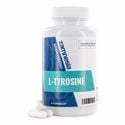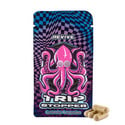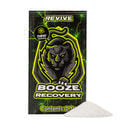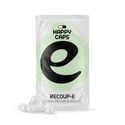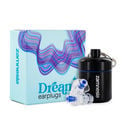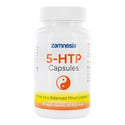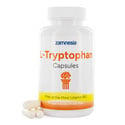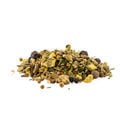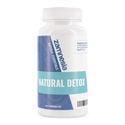-
Seedshop
-
Feminized
Cannabis seeds -
Autoflowering
Cannabis Seeds -
Regular
Cannabis Seeds -
F1 Hybrid
Cannabis Seeds -
CBD
Cannabis Seeds -
Zamnesia
Cannabis Seeds
-
Top 10’s
- Top 10 Feminized Seeds
- Top 10 Autoflowering Seeds
- Top 10 Regular Seeds
- Top 10 USA Cannabis Strains
-
Favourites
- Beginner Strains
- Below 1% THC
- Classic Cannabis Strains
- Cup Winners
- F1 Hybrids
- Fast Flowering Seeds
- High CBD Strains
- High THC Strains
- Mix Packs
- Zamnesia Exclusive Collabs
-
-
Headshop
-
Vaporshop
- Spare Parts & Accessories
- AirVape XS GO (2021)
- Arizer Air MAX
- Arizer Extreme Q
- Arizer Solo 2
- Arizer V-Tower
- Arizer XQ2
- Boundless CFC 2.0 Vaporizer
- Boundless CFX
- Boundless TERA (V3)
- CRAFTY+
- DaVinci IQC
- Dr. Dabber Boost EVO
- DynaVap VapCap "M" PLUS 2023
- DynaVap VonG (i) Titanium
- Flowermate Aura
- Flowermate Cap Pro
- Flowermate Slick
- Flowermate V5.0S Pro
-
Healthshop
-
Smartshop
-
Shroomshop
-
Growshop
-
Seedshop
All CategoriesSeedshop
- Autoflower Seeds
- Feminized Cannabis Seeds
- Zamnesia Seeds
- Zamnesia's Top 10
- CBD Seeds
- F1 Hybrids
- Seed Banks
- Mix Packs
-
Popular Strain Types
- Zamnesia Exclusive Collabs
- Classic Cannabis Strains
- Amnesia Seeds
- Haze Seeds
- Skunk Seeds
- Kush Seeds
- Purple Seeds
- Blueberry Seeds
- Cheese Seeds
- Diesel Seeds
- White Widow Seeds
- Gorilla Seeds
- Northern Lights Seeds
- Granddaddy Purple Seeds
- OG Kush Seeds
- Blue Dream Seeds
- Lemon Haze Seeds
- Bruce Banner Seeds
- Gelato Seeds
- Sour Diesel Seeds
- Jack Herer Seeds
- Girl Scout Cookies Seeds (GSC)
- Wedding Cake Seeds
- Zkittlez Seeds
- Pineapple Express Seeds
- Chemdawg Seeds
- Hindu Kush Seeds
- Mimosa Seeds
- F1 Hybrids
- Mix Packs
- Cup Winners
- Beginner Strains
- High THC Strains
- Fast Flowering Seeds
- Regular Cannabis Seeds
- USA Cannabis Strains
- Cup Winners
- Seedfinder
-
Vaporshop
All CategoriesVaporshop
- Top 10 Vaporizers
- Spare Parts & Accessories
- AirVape XS GO (2021)
- Arizer Air MAX
- Arizer Extreme Q
- Arizer Solo 2
- Arizer V-Tower
- Arizer XQ2
- Boundless CFC 2.0 Vaporizer
- Boundless CFX
- Boundless TERA (V3)
- CRAFTY+
- DaVinci IQC
- Dr. Dabber Boost EVO
- DynaVap VapCap "M" PLUS 2023
- DynaVap VonG (i) Titanium
- Flowermate Aura
- Flowermate Cap Pro
- Flowermate Slick
- Flowermate V5.0S Pro
- G Pen Elite II
- G Pen Micro+
- G Pen Roam
- Hyer Big-E Rig
- MIGHTY+
- PAX Mini
- PAX Plus
- PLENTY
- Puffco Peak Smart Rig
- Puffco Plus
- Storm Vaporizer
- The Proxy (Puffco)
- VOLCANO CLASSIC
- VOLCANO HYBRID
- Vapman 2.0
- Vapman Click
-
Smartshop
All CategoriesSmartshop
- Top 10 Smartshop
- Zamnesia Gift Cards
- After Party
- Aphrodisiacs
- Aromatherapy
- Blue Lotus
- CBD Vape Juice
- Capsule Machines
- Crystals, Gemstones & Minerals
- Dream Herbs
- Drug Tests
- Extracts
- Happy Caps
- Herbal Tea
- Herbs & Seeds
- Incense
- Kanna
- Kratom
- LSA Seeds
- Mescaline Cacti
- Microdosing
- Nootropics
- Relaxing
- Salvia divinorum
- Smart Seeds
- Stimulants
- Supplements
- Tinctures
- Vape Herbs
-
TRIBE
All CategoriesTRIBE
- My Membership
- Spend Gift Points
- TRIBE Sale
- Exclusive products
- Earn Extra Gift Points
-
TRIBE
- Early Access
- Refer a Friend
- Information
-
TRIBE
-
Language
 United States
United States
Friday, 19 December and Thursday, 25 December 2025*
- Zamnesia >
- Smartshop >
- After Party >
- Tryptophan >
- What's the difference between tryptophan and 5-HTP?
Tryptophan vs 5-HTP: Understanding the differences

Tryptophan and 5-HTP are popular supplements used to support mood, sleep, and emotional balance. While they share a common goal, they work differently in the body. This article explores how they compare, their potential benefits, and how to choose between them.
Serotonin plays a central role in regulating mood, sleep, and stress—and low serotonin levels are linked to depression, anxiety, and sleep disorders (Lin, 2014). Two supplements often taken to support serotonin production are tryptophan and 5-HTP. Both available over the counter, they are easy to get hold of and generally very safe to use.
Despite their common purpose, tryptophan and 5-HTP are not the same. They have different sources, work at different speeds, and affect the body in distinct ways. Understanding the difference between tryptophan and 5-HTP allows you to make an informed choice depending on your goals, whether that’s better sleep, improved mood, or managing mental tension more effectively.
What are tryptophan and 5-HTP?
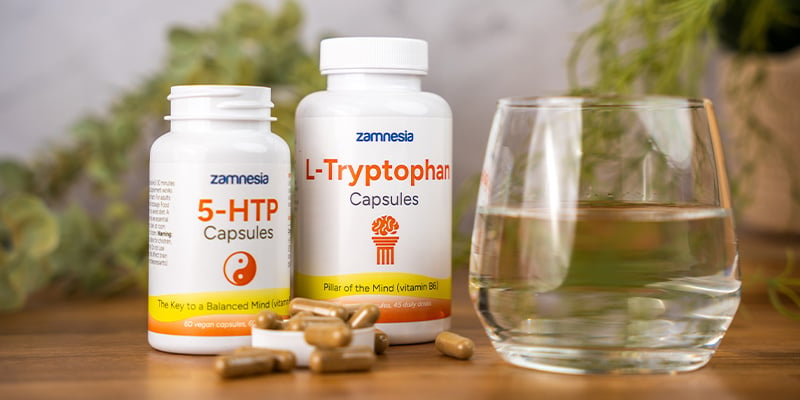
Tryptophan and 5-HTP are both part of the body’s serotonin production process, but they exist at different points along that pathway.
Tryptophan is an essential amino acid found in many foods, while 5-HTP is a chemical byproduct of tryptophan that acts as a more direct serotonin precursor. The key difference is that tryptophan needs to be converted into 5-HTP before it becomes serotonin. Supplementing with either one can raise serotonin levels, but how they do so—and how reliably—varies.
Tryptophan overview
When we say that tryptophan is an essential amino acid, it simply means your body can’t produce it; you must get it from food. It’s found in high-protein sources such as turkey, chicken, cheese, yoghurt, tofu, seeds, nuts, eggs, and oats.
Once inside the body, tryptophan undergoes a multi-step conversion process. First, it's turned into 5-HTP. Then, with the help of vitamin B6, it converts to serotonin.
However, tryptophan has to compete with other amino acids for transport across the blood–brain barrier. This makes its conversion into serotonin slower and less efficient.
The presence of carbohydrates can help, as they trigger insulin release, which reduces competition and allows more tryptophan to enter the brain. But dietary or metabolic factors can still reduce its effectiveness as a supplement.
5-HTP overview
5-HTP (5-hydroxytryptophan) is a compound made in the body from tryptophan, but it can also be taken directly as a supplement. Commercial 5-HTP is usually extracted from the seeds of the Griffonia simplicifolia plant.
Unlike tryptophan, it doesn’t need to compete with other amino acids to cross the blood–brain barrier, and it’s only one step away from becoming serotonin.
Because it bypasses earlier stages, 5-HTP is often seen as a more direct and efficient route to raising serotonin levels. It is commonly taken in relation to mood support, sleep, and tension-related symptoms, though more clinical studies are needed to establish consistent outcomes. However, its more pronounced effects mean it also carries a higher risk of side effects.
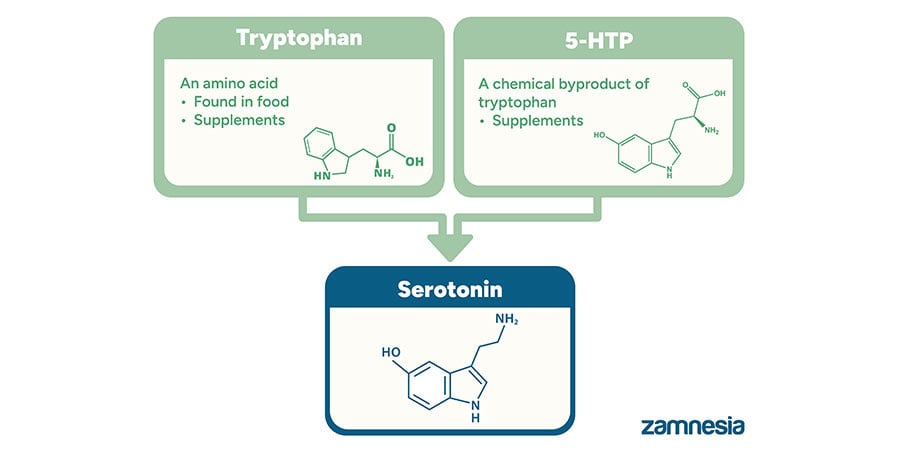
Comparing the effects and benefits of 5-HTP and tryptophan
Both tryptophan and 5-HTP influence the serotonin system, but they do so at different rates and with slightly different outcomes. The right choice depends on what you're aiming to achieve. It could be your mood, sleep, or you might simply be seeking a general sense of relaxation.
Mood
For people dealing with low mood, 5-HTP tends to work more quickly. Because it converts directly into serotonin, it may raise levels faster and produce effects sooner than tryptophan. A study comparing the two found that 5-HTP affected depressive symptoms within two weeks, while tryptophan took longer to show noticeable changes (Shaw et al., 2002).
Tryptophan may take more time, but its effects often last longer and feel more stable. As such, it may be better suited for long-term support, especially when combined with a balanced diet. It also has a lower risk of serotonin-related side effects, making it more appropriate for people with mild to moderate symptoms or those seeking gradual improvement.
Sleep and relaxation

Tryptophan and 5-HTP can both support better sleep, but they work in slightly different ways. Tryptophan helps the body make melatonin, the hormone responsible for regulating circadian rhythm (i.e. sleep–wake cycles). This makes it helpful for people who struggle to fall asleep or maintain a regular sleep schedule.
5-HTP, on the other hand, can increase the proportion of REM sleep. Some studies suggest it reduces the number of awakenings during the night and may improve sleep quality in people with insomnia. That said, higher doses of 5-HTP may also cause vivid dreams or restlessness in some users, especially during REM cycles (Meloni, 2022).
Anxious feelings
Anxiety is often linked to low serotonin levels, and both supplements may influence this imbalance. 5-HTP may help affect acute feelings of stress and tension more quickly due to its faster serotonin-boosting effect. Tryptophan, meanwhile, offers more subtle support and may influence symptoms over time, especially if sleep or diet is also improved.
Some evidence suggests 5-HTP may lower cortisol, the body’s primary stress hormone (Meltzer, 1984). However, results across studies are inconsistent.
Tryptophan vs. 5-HTP: Side effects and safety considerations

Although both tryptophan and 5-HTP are widely used, they aren’t without side effects. The risk increases if they’re used at high doses or taken alongside medications that affect serotonin levels.
Side effects
Common side effects of both supplements include:
- Nausea
- Gastrointestinal discomfort
- Drowsiness or fatigue
- Headaches
5-HTP tends to cause more noticeable side effects, especially at doses above 200 mg. In some cases, users report heart palpitations, dizziness, or restlessness. The most serious potential risk is serotonin syndrome, which occurs when serotonin levels become dangerously high. This is more likely when 5-HTP is taken with SSRIs or other antidepressants.
Tryptophan is generally better tolerated, though it may still cause mild nausea or digestive issues in some users. In the 1980s, a contaminated batch of tryptophan supplements caused an outbreak of eosinophilia-myalgia syndrome (EMS). However, this was due to manufacturing issues and not the compound itself. Modern production methods are considered safe.
Who should avoid them?

Not everyone should take serotonin-supporting supplements. You should avoid tryptophan or 5-HTP if you:
- Are taking SSRIs, SNRIs, MAOIs, or other antidepressants
- Have high blood pressure and are on medication
- Are pregnant or breastfeeding
- Have liver or kidney disease
- Are at risk of serotonin syndrome
If in doubt, speak to a healthcare provider before starting either supplement. This is especially important if you’re already taking any medication for mood or sleep.
Can you take tryptophan and 5-HTP together?
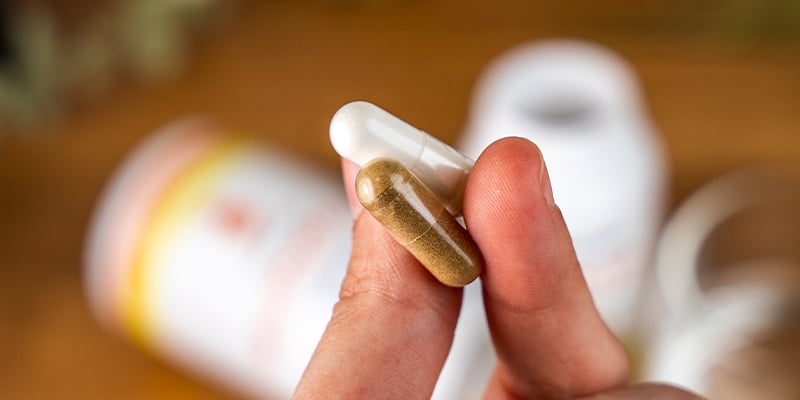
In theory, combining tryptophan and 5-HTP might support both short-term and long-term serotonin production. However, in practice, this is usually discouraged. Taking both increases the risk of excess serotonin in the brain, which can lead to serotonin syndrome—a potentially serious condition with symptoms such as confusion, agitation, increased heart rate, and muscle twitching.
The general consensus in the research community is that these supplements should not be used together unless under strict medical supervision. Most people will benefit more from choosing one and adjusting the dosage as needed.
Dosage and supplements
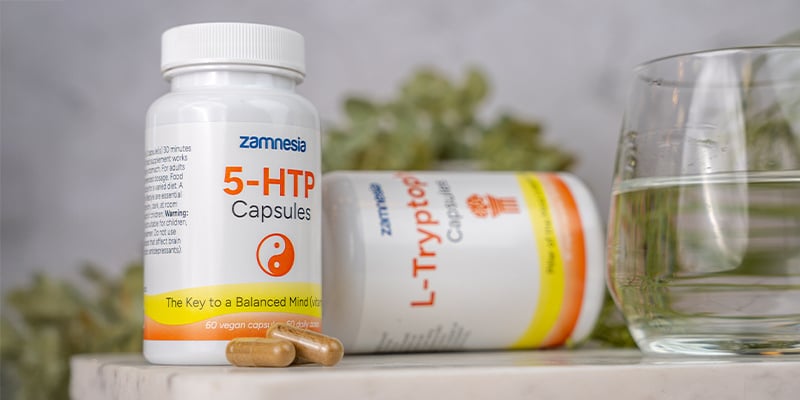
Finding the right dose depends on your body weight, health goals, and sensitivity. Start low and increase only if needed.
Typical dosages:
- Tryptophan: 250 to 500 mg, one to three times daily
- 5-HTP: 50 to 100 mg, one to three times daily
Tips for better absorption:
- Take either supplement on an empty stomach
- Combine tryptophan with vitamin B6 and magnesium for improved conversion
- Avoid alcohol and caffeine around the time you take the supplement
- Tryptophan may work best when taken with a small amount of carbohydrates
Supplements come in various forms, but capsules are the most common. Powders can be useful if you want precise control over the dosage. Timed-release tablets are also available for 5-HTP, offering a slower, more sustained effect.
Which one should you choose: Tryptophan vs 5-HTP
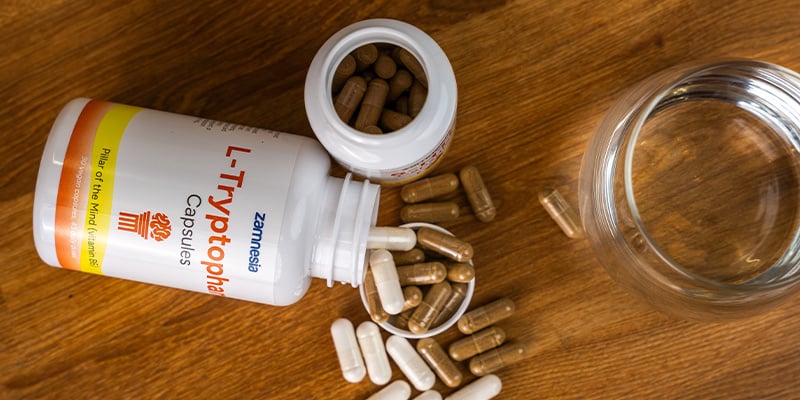
Choosing between tryptophan and 5-HTP depends on your unique needs and supplement tolerance. One isn’t universally better than the other, but each has strengths depending on your situation.
Based on your goal
| Fall asleep faster | Tryptophan |
| Improve sleep quality (REM) | 5-HTP |
| Quick mood improvement | 5-HTP |
| Gradual mood support | Tryptophan |
| Manage long-term mental tension | Either (depends on response) |
| Sensitive to side effects | Tryptophan |
Based on your lifestyle & diet
If you follow a plant-based diet, 5-HTP may be more convenient. It doesn’t rely on protein intake and is typically vegan-friendly. If you eat a high-protein diet, you may already get plenty of tryptophan through food, though supplementation can still be helpful in some cases.
For people who prefer a gentle approach with fewer side effects, tryptophan is often the better starting point. Those looking for faster, more noticeable effects may prefer 5-HTP, but you should be mindful of any side effects.
5-HTP or tryptophan: Both valid choices
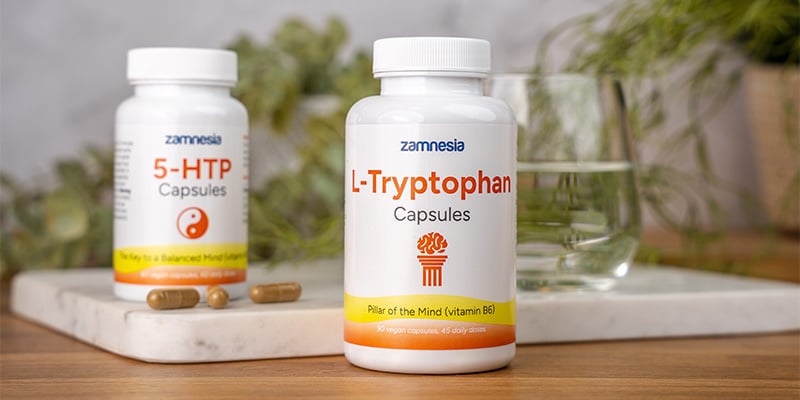
Tryptophan and 5-HTP both help increase serotonin, but they work differently. Tryptophan is slower, steadier, and generally easier to tolerate. It’s well-suited for long-term use, especially for sleep support. 5-HTP, on the other hand, works more quickly, which can be useful for acute symptoms or mood dips, but it carries a higher risk of side effects.
There’s no universal answer, and what works for one person might not suit another. Think about your goals, health background, and how your body responds. And always start with a low dose and track your results carefully. And one final thought—if you eat a healthy and varied diet, there’s a good chance that you already consume plenty of tryptophan and don’t need to supplement it!

- Meloni, Mario, Figorilli, Michela, Carta, Manolo, Tamburrino, Ludovica, Cannas, Antonino, Sanna, Fabrizio, Defazio, Giovanni, Puligheddu, & Monica. (2022, September). Preliminary finding of a randomized, double-blind, placebo-controlled, crossover study to evaluate the safety and efficacy of 5-hydroxytryptophan on REM sleep behavior disorder in Parkinson’s disease - https://link.springer.com
- Meltzer HY, Umberkoman-Wiita B, Robertson A, Tricou BJ, Lowy M, & Perline R. (1984 Apr). Effect of 5-hydroxytryptophan on serum cortisol levels in major affective disorders. I. Enhanced response in depression and mania - https://pubmed.ncbi.nlm.nih.gov
- Shaw K, Turner J, & Del Mar C. (2001). Tryptophan and 5-hydroxytryptophan for depression - https://pubmed.ncbi.nlm.nih.gov
- Shih-Hsien Lin, Lan-Ting Lee, & Yen Kuang Yang. (2014 Dec 26). Serotonin and Mental Disorders: A Concise Review on Molecular Neuroimaging Evidence - https://pmc.ncbi.nlm.nih.gov
- France
- Germany
- International
- Italy
- Netherlands
- Polska
- Portugal
- Spain
- United Kingdom
- United States
After party supplements
-
€ 22,99
-
€ 3,49+2 Extra Gift Points
-
€ 1,49+1 Extra Gift Points
-
€ 9,50
-
€ 9,99+5 Extra Gift Points
-
€ 19,99+10 Extra Gift Points
-
€ 19,99+10 Extra Gift Points
-
€ 6,95
-
€ 23,99+13 Extra Gift Points
You might also like
-

 5 min
20 May 2025
Top 7 nootropics to boost mental performance
Nootropics occur in nature and can also be synthesised in labs. But with so many options, finding the right one isn't easy. Discover our 7 top picks to support memory and focus. ...
5 min
20 May 2025
Top 7 nootropics to boost mental performance
Nootropics occur in nature and can also be synthesised in labs. But with so many options, finding the right one isn't easy. Discover our 7 top picks to support memory and focus. ...
-
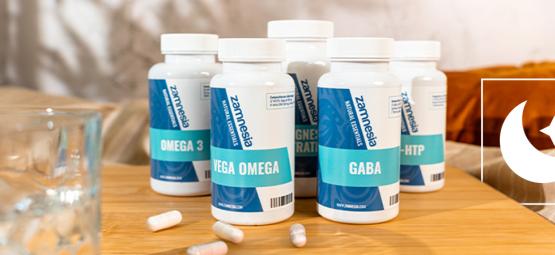
 5 min
14 June 2024
5 Supplements For A Soothing Night's Sleep
Discover everything you need to know about using supplements to enhance sleep, exploring their potential benefits as well as their limitations. Get to know five promising supplements that may help to ...
5 min
14 June 2024
5 Supplements For A Soothing Night's Sleep
Discover everything you need to know about using supplements to enhance sleep, exploring their potential benefits as well as their limitations. Get to know five promising supplements that may help to ...
-
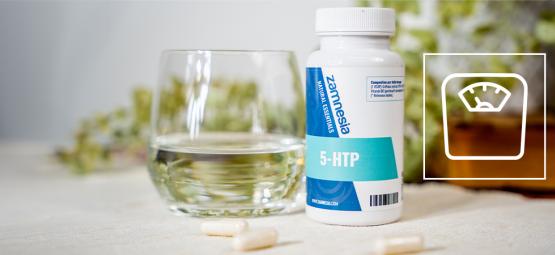
 3 min
2 April 2024
5 Supplements For Watching Your Weight
Here we explore a range of supplements that have the potential to boost metabolism, reduce appetite, and even enhance fat absorption—all of which contribute to a healthy weight. So, whether you'r ...
3 min
2 April 2024
5 Supplements For Watching Your Weight
Here we explore a range of supplements that have the potential to boost metabolism, reduce appetite, and even enhance fat absorption—all of which contribute to a healthy weight. So, whether you'r ...
-
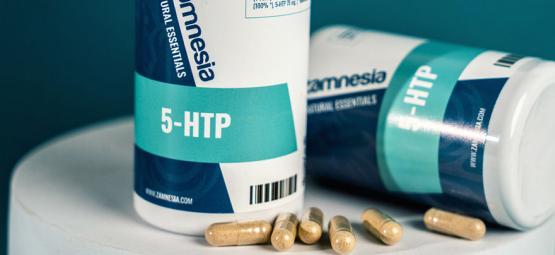
 4 min
3 November 2022
5-HTP: Everything You Need To Know
As a supplement, the use of 5-HTP has increased dramatically over the years. While the body naturally produces this chemical, many are looking to increase systemic levels in hopes of experiencing the ...
4 min
3 November 2022
5-HTP: Everything You Need To Know
As a supplement, the use of 5-HTP has increased dramatically over the years. While the body naturally produces this chemical, many are looking to increase systemic levels in hopes of experiencing the ...
Categories
-
Seedshop
- Feminized Cannabis Seeds
- Autoflower Seeds
- Regular Cannabis Seeds
- F1 Hybrids
- CBD Seeds
- Zamnesia Seeds
- Top 10 Autoflowering Seeds
- Top 10 Regular Seeds
- Top 10 USA Cannabis Strains
- Top 10 Feminized Seeds
- Beginner Strains
- Below 1% THC
- Classic Cannabis Strains
- Cup Winners
- F1 Hybrids
- Fast Flowering Seeds
- High CBD Strains
- High THC Strains
- Mix Packs
- Zamnesia Exclusive Collabs
- Amnesia Seeds
- Blueberry Seeds
- Cheese Seeds
- Diesel Seeds
- Gorilla Seeds
- Haze Seeds
- Kush Seeds
- Purple Seeds
- Skunk Seeds
- White Widow Seeds
- Northern Lights Seeds
- Granddaddy Purple Seeds
- OG Kush Seeds
- Blue Dream Seeds
- Lemon Haze Seeds
- Bruce Banner Seeds
- Gelato Seeds
- Sour Diesel Seeds
- Jack Herer Seeds
- Girl Scout Cookies Seeds (GSC)
- Wedding Cake Seeds
- Zkittlez Seeds
- Pineapple Express Seeds
- Chemdawg Seeds
- Hindu Kush Seeds
- Mimosa Seeds
- Zamnesia Seeds
- ACE Seeds
- Advanced Seeds
- Afghan Seed Connection
- Amsterdam Genetics
- Anesia Seeds
- Auto Seeds
- Barney's Farm
- Big Buddha Seeds
- Blimburn Seeds
- Bomb Seeds
- BSB Genetics
- BSF Seeds
- Buddha Seeds
- The Cali Connection Seeds
- CBD Seeds
- Compound Genetics
- Cookies Seed Bank
- Delicious Seeds
- DNA Genetics
- Doctor's Choice
- Dr. Underground
- Dutch Passion
- Elite Seeds
- Eva Seeds
- Exotic Seed
- Expert Seeds
- FastBuds
- Female Seeds
- French Touch Seeds
- Garden of Green
- GeneSeeds
- Genehtik Seeds
- G13 Labs
- Grass-O-Matic
- Greenhouse Seeds
- Growers Choice
- Humboldt Seed Company
- Humboldt Seed Organization
- Kalashnikov Seeds
- Kannabia
- The Kush Brothers
- Light Buds
- Little Chief Collabs
- Medical Seeds
- Ministry of Cannabis
- Mr. Nice
- Nirvana Seeds
- Original Sensible
- Paradise Seeds
- Perfect Tree
- Pheno Finder
- Philosopher Seeds
- Positronics Seeds
- Purple City Genetics
- Pyramid Seeds
- Rare Dankness
- Reggae Seeds
- Resin Seeds
- Ripper Seeds
- Royal Queen Seeds
- Sagarmatha Seeds
- Samsara Seeds
- Seedstockers
- Sensation Seeds
- Sensi Seeds
- Serious Seeds
- Silent Seeds
- Solfire Gardens
- Soma Seeds
- Spliff Seeds
- Strain Hunters
- Sumo Seeds
- Super Sativa Seed Club
- Super Strains
- Sweet Seeds
- TICAL
- T.H. Seeds
- Top Tao Seeds
- Vision Seeds
- VIP Seeds
- White Label
- World Of Seeds
- Seed Banks
-
Headshop
-
Vaporshop
-
Healthshop
-
Smartshop
- Top 10 Smartshop
- Kratom Dosage Calculator
- Zamnesia Gift Cards
- After Party
- Aphrodisiacs
- Aromatherapy
- Blue Lotus
- CBD Vape Juice
- Capsule Machines
- Crystals, Gemstones & Minerals
- Dream Herbs
- Drug Tests
- Extracts
- Happy Caps
- Herbal Tea
- Herbs & Seeds
- Incense
- Kanna
- Kratom
- LSA Seeds
- Mescaline Cacti
- Microdosing
- Nootropics
- Relaxing
- Salvia divinorum
- Smart Seeds
- Stimulants
- Supplements
- Tinctures
- Vape Herbs
-
Shroomshop
-
Growshop
- Top 10 Growshop
- Top 10 Plant Seeds
- All Seeds
- Cacti
- Chili & Pepper Seeds
- Companion Plants
- Edible Plant Seeds
- Exotic Seeds
- Flower Seeds
- Fruit Seeds
- Herb Seeds
- Interior Plant Seeds
- Microgreens
- Psychoactive Plant Seeds
- Sprouting
- Vegetable Seeds
- Wellness Plant Seeds
- After Harvest
- Climate Control
- Fertilizer
- Grow Tents
- Harvest, Dry & Cure
- LED Grow Lights
- Plant Seeds
- Propagation
-
Merchandise
-
Sale section
Categories
Discover
Help & Info
Tools
Our website won't work without these cookies activated. Therefore functional cookies can't be disabled.
Table of contents





